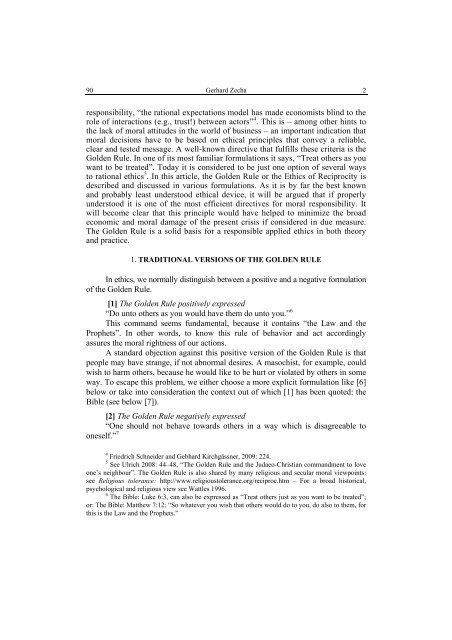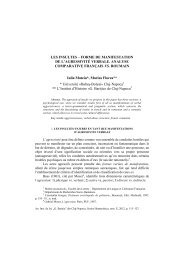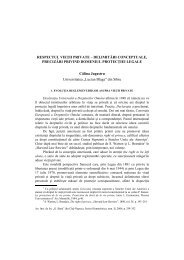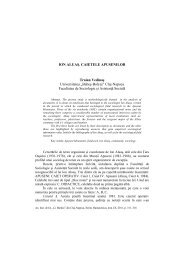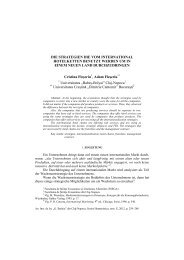THE GOLDEN RULE IN APPLIED ETHICS - Series HUMANISTICA
THE GOLDEN RULE IN APPLIED ETHICS - Series HUMANISTICA
THE GOLDEN RULE IN APPLIED ETHICS - Series HUMANISTICA
Create successful ePaper yourself
Turn your PDF publications into a flip-book with our unique Google optimized e-Paper software.
90 Gerhard Zecha 2<br />
responsibility, “the rational expectations model has made economists blind to the<br />
role of interactions (e.g., trust!) between actors” 4 . This is – among other hints to<br />
the lack of moral attitudes in the world of business – an important indication that<br />
moral decisions have to be based on ethical principles that convey a reliable,<br />
clear and tested message. A well-known directive that fulfills these criteria is the<br />
Golden Rule. In one of its most familiar formulations it says, “Treat others as you<br />
want to be treated”. Today it is considered to be just one option of several ways<br />
to rational ethics 5 . In this article, the Golden Rule or the Ethics of Reciprocity is<br />
described and discussed in various formulations. As it is by far the best known<br />
and probably least understood ethical device, it will be argued that if properly<br />
understood it is one of the most efficient directives for moral responsibility. It<br />
will become clear that this principle would have helped to minimize the broad<br />
economic and moral damage of the present crisis if considered in due measure.<br />
The Golden Rule is a solid basis for a responsible applied ethics in both theory<br />
and practice.<br />
1. TRADITIONAL VERSIONS OF <strong>THE</strong> <strong>GOLDEN</strong> <strong>RULE</strong><br />
In ethics, we normally distinguish between a positive and a negative formulation<br />
of the Golden Rule.<br />
[1] The Golden Rule positively expressed<br />
“Do unto others as you would have them do unto you.” 6<br />
This command seems fundamental, because it contains “the Law and the<br />
Prophets”. In other words, to know this rule of behavior and act accordingly<br />
assures the moral rightness of our actions.<br />
A standard objection against this positive version of the Golden Rule is that<br />
people may have strange, if not abnormal desires. A masochist, for example, could<br />
wish to harm others, because he would like to be hurt or violated by others in some<br />
way. To escape this problem, we either choose a more explicit formulation like [6]<br />
below or take into consideration the context out of which [1] has been quoted: the<br />
Bible (see below [7]).<br />
[2] The Golden Rule negatively expressed<br />
“One should not behave towards others in a way which is disagreeable to<br />
oneself.” 7<br />
4 Friedrich Schneider and Gebhard Kirchgässner, 2009: 224.<br />
5 See Ulrich 2008: 44–48, “The Golden Rule and the Judaeo-Christian commandment to love<br />
one’s neighbour”. The Golden Rule is also shared by many religious and secular moral viewpoints:<br />
see Religious tolerance: http://www.religioustolerance.org/reciproc.htm – For a broad historical,<br />
psychological and religious view see Wattles 1996.<br />
6 The Bible: Luke 6:3, can also be expressed as “Treat others just as you want to be treated”;<br />
or: The Bible: Matthew 7:12: “So whatever you wish that others would do to you, do also to them, for<br />
this is the Law and the Prophets.”


